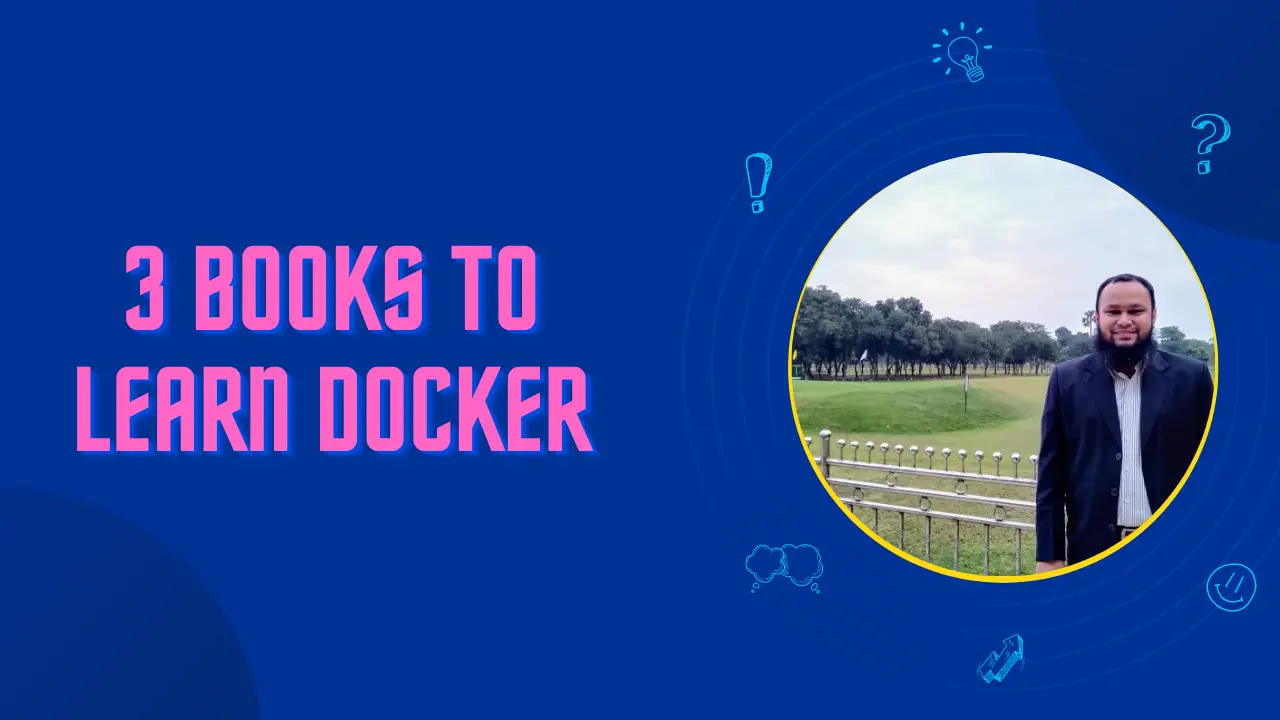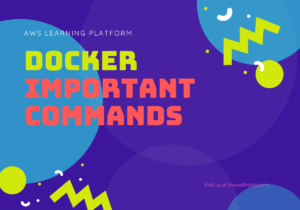Welcome to the world of Docker – a tool designed to simplify the process of creating, deploying, and running applications by using containerization. Containers allow developers to wrap up an application with everything it needs, such as libraries and other dependencies, and ship it all out as one package. In this way, the application can run on any other machine regardless of any customized settings that the machine might have. This is why Docker has become an essential tool for developers and organizations to improve their development lifecycle.
Reading about Docker is one of the best ways to understand the intricacies of this technology. Books offer an organized, comprehensive way of learning Docker that is usually more structured and in-depth than online tutorials or videos. This blog post is going to walk you through the top three books for Docker enthusiasts that will deepen your understanding and enhance your skills.
Table of Contents
Why Read Docker Books?
In an era where information is at our fingertips, you might wonder why you should turn to books for learning Docker. Here are some reasons that underline the importance of books in the Docker learning journey.
Structured Learning: Books provide a structured approach to learning, often starting from the basics and gradually moving to advanced topics. This allows readers to build a strong foundation before tackling more complex concepts.
Comprehensive Details: Authors typically spend significant time explaining concepts, providing examples, and covering edge cases. This leads to a more thorough understanding that’s crucial when working on real-life projects.
Reference Material: Books serve as excellent reference material. Once you’ve read and understood a concept, you can always go back and refresh your knowledge.
In-depth Understanding: Books allow for a deep dive into the why and how of Docker, not just the what. Understanding the rationale behind Docker’s design and operation will make you a more proficient user and troubleshooter.
Convenience: Books can be read anywhere, anytime. Whether you’re offline on a flight or simply prefer to learn away from the computer, a book is a perfect companion.
In the next sections, we’ll delve into our top picks for Docker books. Whether you’re a beginner just starting out or a seasoned professional looking to expand your knowledge, there’s a book for you in our selection.
Top 3 Docker Books
Docker: Up & Running: Shipping Reliable Containers in Production 3rd Edition
“Docker: Up & Running: Shipping Reliable Containers in Production” is a comprehensive guide to Docker that’s as pragmatic as it is insightful. Authored by Karl Matthias and Sean P. Kane, this book serves as an invaluable resource for anyone seeking to understand Docker, regardless of their technical background.
The book is a well-structured journey that starts from the fundamental concepts of Docker and smoothly transitions into more advanced topics. For beginners, the book offers a clear and concise introduction to containerization, explaining its benefits and the problems it solves in today’s software development landscape. It eases readers into Docker’s ecosystem, starting with simple commands and progressively explaining more complex functionalities.
What sets this book apart is its emphasis on practical application. The authors understand that learning Docker is not merely about understanding commands and syntax but about knowing how to use Docker effectively in a real-world environment. Throughout the book, they consistently translate theory into practice, presenting real-world examples and using cases that add depth and context to the concepts being discussed.
Intermediate and advanced Docker users will appreciate the book’s thorough coverage of complex topics like Docker networking, orchestrating containers using Docker Swarm, and Docker security considerations. The book also touches upon using Docker in specific environments like cloud platforms, providing readers with a glimpse of Docker’s versatile capabilities.
“Docker: Up & Running” is not just about running commands; it’s about understanding what’s happening behind the scenes. The book provides insights into Docker’s architecture and how it works, which is a great help in troubleshooting and optimizing Docker applications.
A distinguishing aspect of this book is the way it addresses production concerns. It provides guidance on how to ship and run containers at scale, ensuring reliability, and resilience, making it a helpful resource for DevOps professionals.
Mastering Docker: Enhance your containerization and DevOps skills to deliver production-ready applications
“Mastering Docker” is an excellent resource that takes you beyond the basics and dives into the nuances and advanced features of Docker. It’s an essential read for anyone looking to enhance their containerization and DevOps skills.
This book by Russ McKendrick and Scott Gallagher delves deep into the Docker ecosystem. It provides valuable insights into creating, managing, and securing Docker environments, making it an invaluable guide for those who wish to utilize Docker in a production setting.
The authors do a fantastic job of explaining complex topics in an accessible way. The book offers a perfect balance of theory, hands-on examples, and best practices, ensuring readers not only understand the concepts but also know how to apply them effectively.
One of the standout features of “Mastering Docker” is its emphasis on real-world applications. The book provides extensive information on how to deploy, monitor, and maintain Docker applications in production environments. It explores advanced topics like Docker orchestration with Swarm and Kubernetes, multi-stage builds, and network and data management in depth.
“Mastering Docker” also keeps a keen eye on security, another reason why it’s suitable for those involved in DevOps. From securing Docker installations and images to creating and managing isolated user namespaces, the book covers a range of strategies to fortify your Docker environment.
In summary, “Mastering Docker” is an expertly crafted guide that will be a great asset to any Docker user, regardless of their level of expertise. Its comprehensive coverage of Docker’s advanced features and its strong focus on practical, real-world application makes it a must-read for anyone aiming to improve their containerization and DevOps skills.
Docker in Action, Second Edition
“Docker in Action, Second Edition” by Jeff Nickoloff and Stephen Kuenzli is a remarkable guide that provides an immersive and comprehensive journey through Docker’s capabilities. This book is ideal for Docker users at all levels, serving both as a detailed introduction for beginners and an extensive reference for more experienced users.
Nickoloff and Kuenzli make learning Docker an engaging and interactive experience. The book is filled with hands-on examples and exercises, allowing readers to apply and experiment with the concepts discussed. This ‘learning by doing’ approach enables readers to gain practical experience and understand Docker’s functionalities in a context that mirrors real-world applications.
“Docker in Action, Second Edition” explores Docker’s fundamental concepts, such as images and containers, in great detail. Yet, it doesn’t stop there. It delves into advanced topics like Docker networking, Docker API, and Docker security, offering a depth of coverage that is hard to find in other resources.
What makes this book stand out is its strategic approach to Docker. The authors discuss how to use Docker to optimize software delivery pipelines and improve software architecture. They also cover managing and orchestrating Docker services, which is particularly valuable for those involved in DevOps and managing production environments.
Nickoloff and Kuenzli have done an excellent job in keeping the content up-to-date with Docker’s latest features. The second edition has been revised and expanded to include coverage of Docker Compose, Docker Swarm mode, and Docker’s support for Kubernetes, making it a relevant and valuable resource in the current landscape.
Who Should Read These Books?
Docker has applications across a wide spectrum of roles in the software development world. From those just beginning their journey to seasoned veterans looking to streamline their development process, Docker holds immense value. Here’s a breakdown of who will most benefit from reading these Docker books:
Beginners: If you’re starting from scratch, these books will help you understand Docker’s fundamental concepts, such as images, containers, Dockerfiles, and Docker Compose. These books offer a solid introduction, helping you set up your Docker environment and start running your first containers.
Intermediate Users: For developers who have had some exposure to Docker but are looking to take their knowledge to the next level, these books provide in-depth explanations of advanced topics, including networking, security, orchestration with Docker Swarm or Kubernetes, and more.
DevOps Professionals: If you’re in a DevOps role, Docker is nearly a requirement. It’s pivotal in implementing CI/CD, and these books will guide you on how to create efficient pipelines and deployment workflows with Docker.
Advanced Users: Even if you’re a seasoned Docker user, there’s always more to learn. Advanced sections in these books can offer insights into the latest Docker features and best practices.
Additional Resources
While books provide in-depth knowledge and serve as excellent reference material, diversifying your learning resources can help cement your understanding and expose you to different perspectives. Here are some additional resources to complement your learning from the books:
Online Tutorials and Courses: Websites such as Coursera, Udemy, and freeCodeCamp offer courses on Docker, ranging from beginner to advanced levels. These often include video content and interactive coding exercises.
Documentation: The official Docker documentation is a rich and authoritative resource for understanding Docker. It is continually updated and covers everything from getting-started guides to advanced topics.
Forums and Q&A Sites: Communities such as Stack Overflow and the Docker forums are full of discussions and problem-solving around Docker. They are an excellent resource when you’re facing issues or need practical, real-world insights.
Blogs and Tech Websites: Following blogs of Docker experts and tech websites can help you stay updated with the latest trends and best practices in Docker.
Remember, the key to mastering Docker is a mix of theoretical knowledge and hands-on practice. So, don’t just limit yourself to reading. Implement what you learn and experiment with Docker on your own projects.
Conclusion
The world of Docker can seem complex and intimidating, but with the right resources, you can dive into it with confidence. The books we’ve discussed are the perfect starting point to establish a solid foundation, then extend and deepen your Docker knowledge. They are designed to cater to readers of all levels, so whether you’re just beginning your journey or seeking to bolster your existing skills, you’ll find a wealth of insights.
Remember that learning is a process and it requires patience, time, and practice. Docker’s significance in today’s tech landscape makes it a worthy investment of that time and effort. It’s a skill that will undoubtedly benefit your career, whether you’re a developer, system admin, or DevOps professional.
These books are more than just informational resources – they’re tools. Tools that you can return to whenever you need guidance or insight, and tools that can help you build your Docker projects with precision, efficiency, and a deep understanding of the principles at work.
References and Further Reading
For a more in-depth exploration of Docker and its applications, you can refer to the following resources:
- Official Docker Documentation
- Docker Forums
- Docker on Stack Overflow
- Docker Course on Coursera
- Docker Course on Udemy
- Docker Tutorial on freeCodeCamp
Happy learning and remember – each Docker concept you learn, each command you type, and each container you run – brings you one step closer to mastering this powerful tool!



